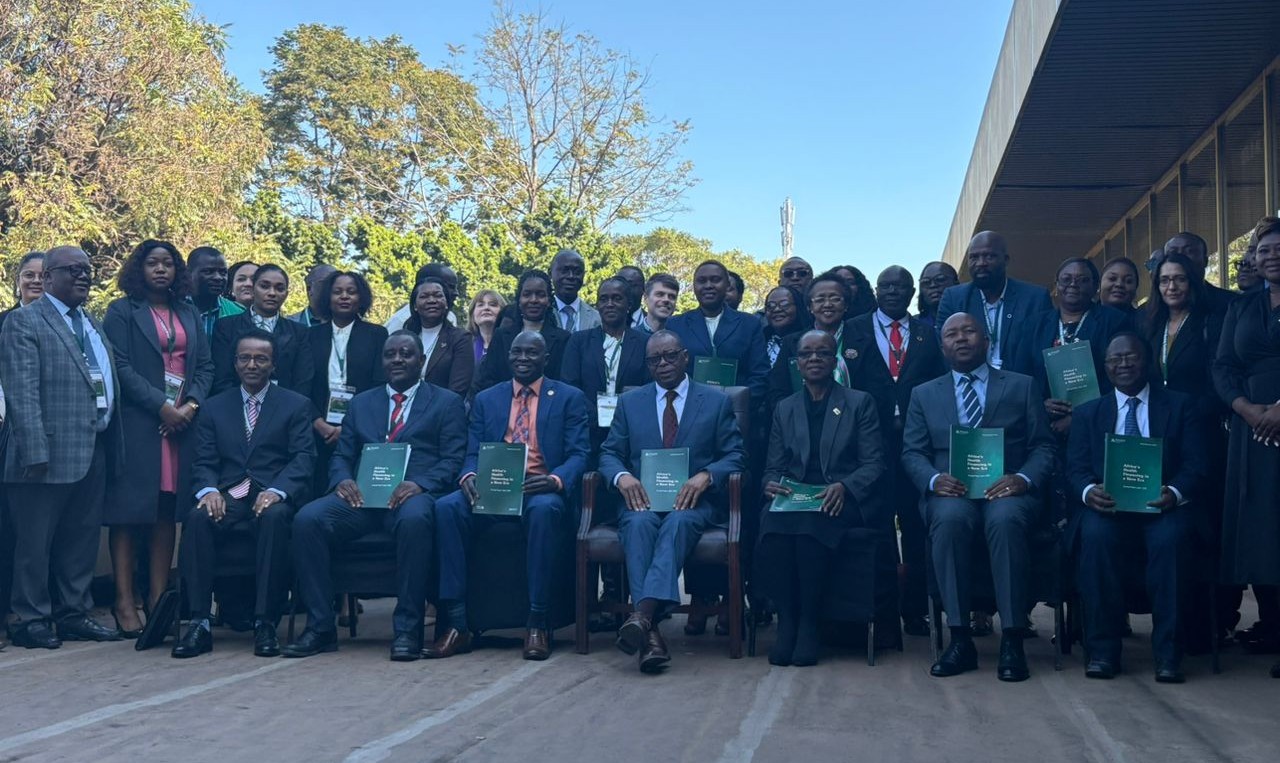AU Member States Urged to Have Functional Nat'l Public Health Institute Capable of Leading Disease Prevention - ENA English
AU Member States Urged to Have Functional Nat'l Public Health Institute Capable of Leading Disease Prevention

Addis Ababa, June 26, 2025 (ENA) --- In a powerful display of regional unity and commitment to strengthening public health systems, senior health officials, government leaders, and public health professionals from across Southern Africa convened in Harare, Zimbabwe, for the Fourth Annual Southern African National Public Health Institute (NPHI) Meeting.
Hosted under the theme “Strengthened Information, Knowledge Sharing and Peer-to-Peer Mentorship,” the gathering brought together member states, development partners, and public health advocates to emphasize the urgent need for fully functional and sustainable national public health institutes across the continent.
Speaking on behalf of the African Society for Laboratory Medicine (ASLM), Dr. Talkmore Maruta delivered a stirring keynote that outlined both the opportunity and responsibility of establishing robust NPHIs.
“We are not safe until everyone is safe,” he declared, warning that countries without operational NPHIs are denying their populations essential protections and services.
His remarks were grounded in recent data from the Africa CDC, which showed that only 18 of 55 AU member states currently have fully functional NPHIs. “The time is yesterday,” Dr. Maruta urged. “With over 200 pathogen-related events reported in 2024, delay is no longer an option.”
The meeting also saw renewed partnerships between ASLM and the Africa CDC in areas such as pathogen genomics, antimicrobial resistance, and workforce training.
Delegates emphasized that NPHIs are more than bureaucratic entities; they are life-saving institutions. They allow governments to mount rapid, effective responses to health threats and ensure continuity in disease surveillance and control, especially in an increasingly interconnected world.
Speaking on behalf of Africa CDC Director General Dr. Jean Kaseya, Dr Lul Riek, the Regional Director of Africa CDC, commended the directors of NPHIs and heads of delegations from across the region for heeding the call to convene.
The meeting’s theme aligns closely with Africa CDC’s New Public Health Order, a continental health vision forged in the wake of the COVID-19 pandemic.
The New Order calls for a paradigm shift to prepare Africa for future health threats, anchored in five pillars: strengthening NPHIs, expanding local manufacturing of medical supplies, enhancing the health workforce, increasing domestic health financing, and building action-oriented partnerships.
“The time to act is now,” the Africa CDC statement emphasized. “Africa’s health future will not be imported. It will be crafted by Africans, for Africans—with humility, collaboration, and determination.”
The organization underscored the urgent need for all 55 African Union Member States to have fully functional NPHIs capable of leading disease prevention, surveillance, and health systems coordination.
Public health threats such as COVID-19, Marburg virus, and Mpox have revealed deep gaps in Africa’s preparedness. NPHIs, the gathering heard, must become the backbone of national and regional health systems, enabling swift, coordinated, and evidence-based responses to emergencies.
Framed within the African Union’s Agenda 2063:, “The Africa We Want,” the call to action aims not only to protect health but to unlock the full potential of the continent.” The Africa we want cannot be achieved unless our people are healthy,” the Africa CDC message affirmed.
The Africa CDC reiterated its full commitment to supporting all AU Member States in building resilient, science-driven health systems. “Together, we must create a global health security network that leaves no one behind—for ourselves, our children, and generations to come.”
The two-day meeting is expected to foster stronger regional collaboration, promote peer mentorship, and accelerate the operationalization of national public health institutes across Southern Africa.